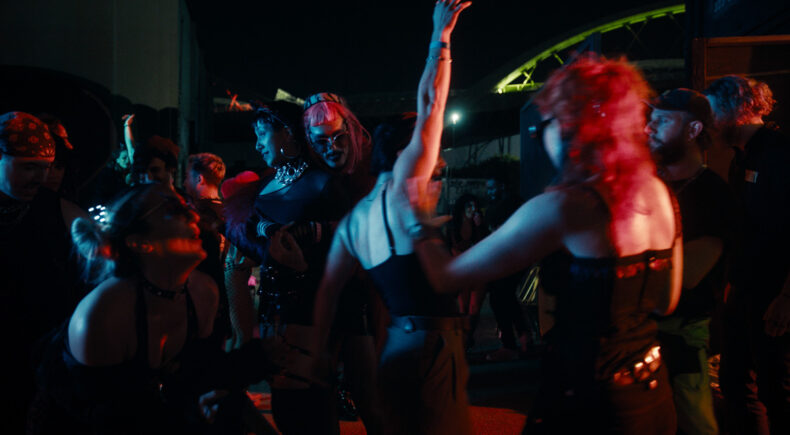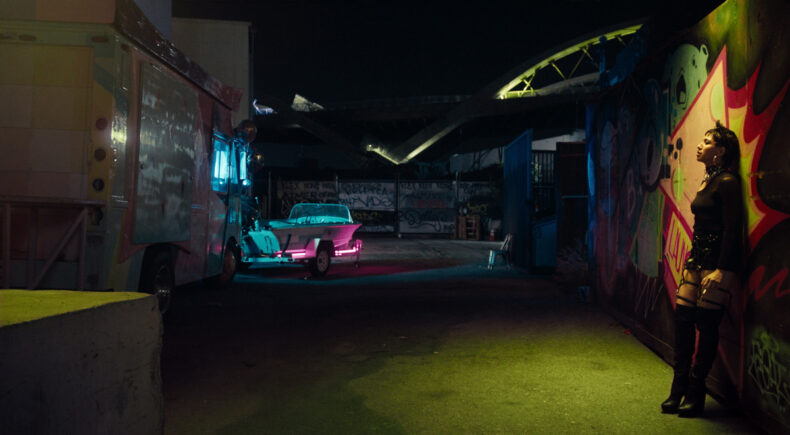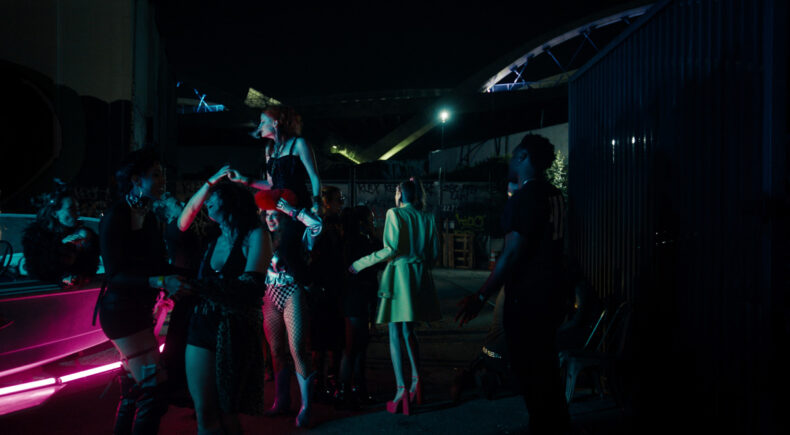Personally I Find It Rude to Be Boring
Director: Derek Spencer
Cast:Rachel Rivera, Acacia Fisher, Scott Monahan, Dakota Loesch, Natalie Llerena, Mike Merchant, Loren Hayes, Marissa Pattullo, Jazzy Middleton, Soren Royer-McHugh
Crew:Producers: Nic Murphy, Scott Monahan. Director of Photography: Trey Betts. Associate Producer: Majella Bess Loughran. Associate Director: Meredith Treinen. Composer: Estlin Usher.
Email:derekalbertspencer@gmail.com
Synopsis
An impossibly-cool underground party turns ugly after a fight spills out into the alley. As the bass thumps relentlessly, ravers pour out of the warehouse. They dance, fight, kiss, smoke, scream, consume, and eventually disappear into the night.
About the director
Derek Spencer is a theater director, installation artist, and filmmaker based in Chicago, IL. He was a prominent voice and community leader in the 2010’s LA immersive movement. For 7 years Derek served as the artistic director of Ceaseless Fun, a critically-acclaimed LA-based immersive theater ensemble creating provocative, underground performances. Recently Derek returned to his hometown to pursue an MFA degree in studio art at the School of the Art Institute of Chicago. He creates work with ensemble casts, using improvisational and collaborative techniques to construct scenes of chaotic spectacle and uncanny intimacy. He likes being the last person to leave a party.
Filmmaker's note
No one is a good person at 3am. We stretch ourselves too far, we get too high, we abandon useful boundaries and norms as our cravings grow more desperate. The after-hours party is a liminal space between pleasure and danger, interesting and obnoxious, cool and cringe.
We know this, but we yearn for the night out anyway. Because you never know what might happen. Because staying in is a concession to entropy and death. Because we’d all secretly rather be bad than boring.
Personally I Find It Rude to Be Boring is about cycles of pleasure-seeking. It’s about how we justify destructive behavior in search of ephemeral gratification. It’s about the solitude of pleasure—characters who can only look at themselves even as they are surrounded by friends. For me, it’s also about nostalgia. Current pleasure never feels as good as we remember past pleasure feeling. In a world still collectively processing the social damage done by a global pandemic, we ask: is it possible to feel as good as we remember feeling? And if we can, is it worth it?





